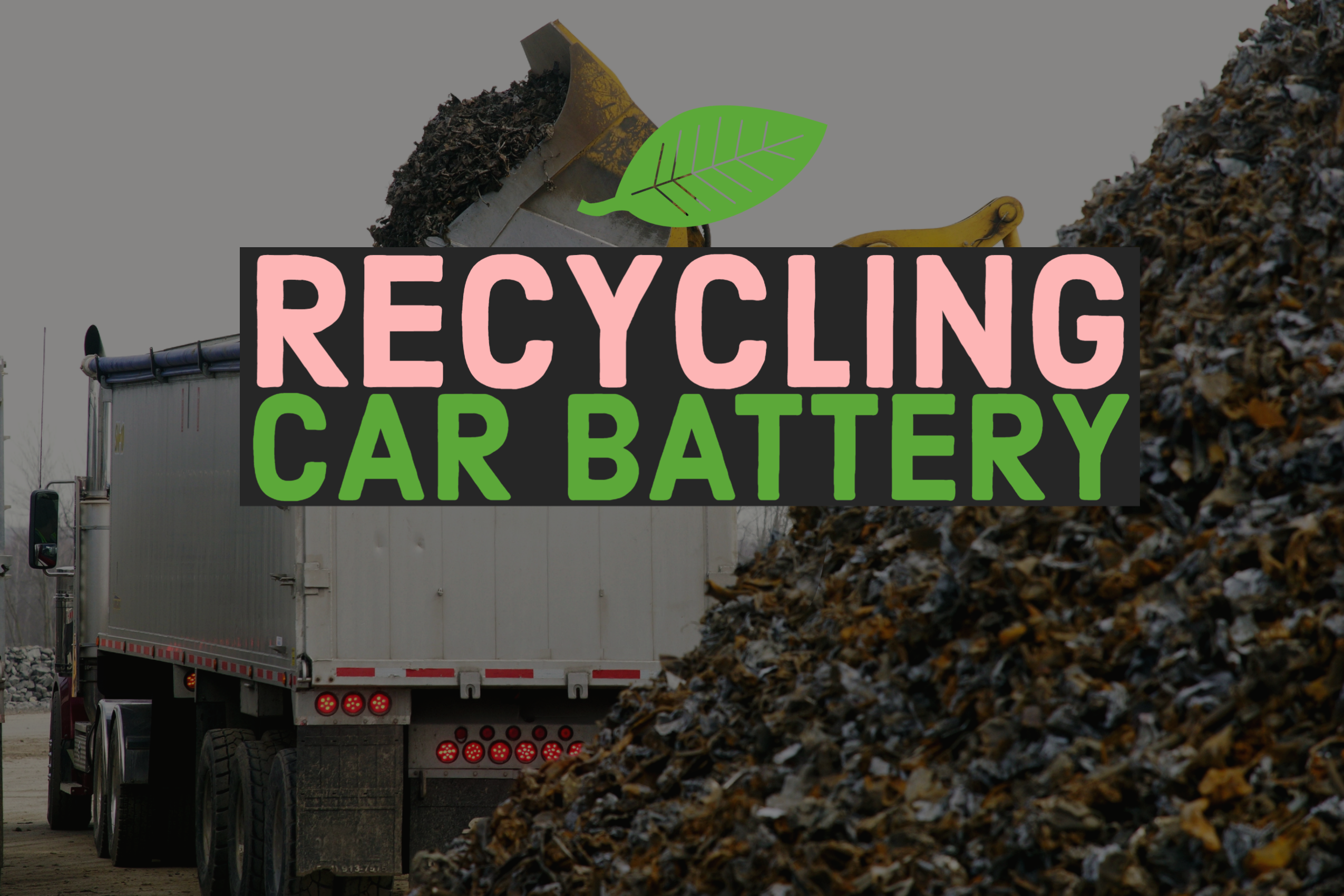Introduction
With the ever-increasing number of vehicles on the road, the need to properly dispose of old car batteries has become more pressing. Car batteries contain a variety of hazardous chemicals, including lead and sulfuric acid, that can cause harm to the environment and human health if not disposed of properly. That’s why it’s crucial to know how to recycle old car batteries in a safe and efficient manner.
In this article, we will go over the steps involved in recycling car batteries, the benefits of recycling, and the importance of proper disposal. Whether you’re a car owner or a scrap yard operator, this guide will provide you with valuable information on how to recycle old car batteries.
The Benefits of Recycling Car Batteries

Recycling old car batteries offers numerous benefits, both to the environment and to the economy. By recycling car batteries, we can:
- Reduce Environmental Pollution
Lead, sulfuric acid, and other hazardous chemicals found in car batteries can leach into the soil and water if not disposed of properly. This can cause harm to both the environment and human health. Recycling car batteries helps to minimize the environmental impact by preventing these chemicals from ending up in landfills.
- Conserve Natural Resources
Recycling car batteries allows us to recover valuable materials, including lead and plastic, that can be reused to make new batteries. This conserves natural resources and reduces the need to extract new raw materials, which can have a negative impact on the environment.
- Stimulate the Economy
The recycling of car batteries creates jobs and generates revenue. By recycling old car batteries, we can support the growth of recycling industries and contribute to the local and national economy.
The Importance of Proper Disposal

Proper disposal of car batteries is crucial to minimize the environmental and health risks associated with these hazardous materials. Improper disposal, such as tossing batteries in the trash or leaving them to leak chemicals in the environment, can result in serious consequences, including:
- Soil and Water Contamination
Lead and sulfuric acid can leach into the soil and water, contaminating these resources and making them unsafe for human use.
- Air Pollution
Car batteries release hydrogen gas, which can contribute to air pollution and harm human health if not properly managed.
- Threat to Wildlife
Lead and other chemicals in car batteries can pose a threat to wildlife if not disposed of properly. For example, lead can be ingested by birds and other animals, leading to serious health problems.
Steps Involved in Recycling Car Batteries

Recycling car batteries is a multi-step process that involves the collection, transportation, and processing of old batteries. The following steps outline the process of recycling car batteries:
- Collection
Car batteries can be collected from a variety of sources, including car dealerships, repair shops, and scrap yards. Collection programs may also be offered by local governments or recycling organizations.
- Transportation
Once collected, car batteries are transported to a recycling facility where they will be processed. During transportation, it’s important to follow proper safety guidelines to prevent spills and leaks, which can cause harm to the environment and human health.
- Processing
At the recycling facility, the car batteries are processed to recover valuable materials, such as lead and plastic. The lead is melted down and reused to make new batteries, while the plastic is ground into small particles and used to make new battery cases and other plastic products. The sulfuric acid is neutralized and processed into safe by-products.
- Disposal of Non-Recyclable Materials
After the valuable materials have been recovered, the remaining components of the car batteries are disposed of in a safe and environmentally responsible manner. This may involve sending the materials to a hazardous waste landfill or treating them with special processes to neutralize their harmful effects.
Conclusion
Recycling old car batteries is important for protecting the environment and human health, conserving natural resources, and stimulating the economy. By following proper disposal procedures, we can ensure that car batteries are recycled in a safe and efficient manner. Whether you’re a car owner or a scrap yard operator, it’s crucial to understand the importance of recycling and the steps involved in the process. By working together, we can make a positive impact on the environment and help to create a more sustainable future.

